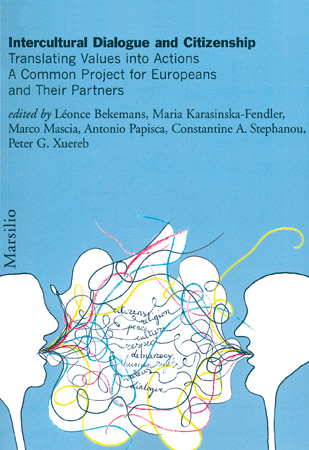Collections

A Republic of Europeans: Civic Unity in Polycultural Diversity
Kostas A. Lavdas, Dimitris N. Chryssochoou (2007)
- Contained in
- Intercultural Dialogue and Citizenship
- Pubblication type
- Articolo / Saggio
- Pages
- 207-230
- Language
- EN
This essay assesses recent developments in the European Union (EU) from a liberal republicanist perspective. It aims at yielding new insights into the transformation of the EU from a states-led project based on a mixed sovereignty regime – a union of co-sovereigns – into a democentric formation that gives rise to a respublica composita. The essay argues the case for rediscovering «civic Europe» through the lens of liberal republicanism, forging a sense of plural demos-hood. It draws from normative theory to establish bridges of understanding between a post-national conception of citizenship and new republicanist thinking, by raising the question of how to transform the EU into a democratic association of free and equal citizens. It suggests that, unlike earlier forms of republican thought that focused on a basically homogeneous political community, republicanism as nondomination can accommodate and even embrace multiculturalism and group rights. From the multiculturalist perspective even the the approaches that associate the value of multiculturalism with its ability to provide for meaningful choices rather than commitment to inherited group values, enable a view that may combine the recognition of the pluralism of cultural possibilities for access to meaningful choice and a framework based on a minimal set of shared political values that is nonetheless crucial, to the extent that it is concerned with arrangements which help citizens increase control over aspects of their own lives. Within this framework, a multitude of commitments may develop emotional engagement as well as enhance opportunities for meaningful choices, leading to the condition of political polyculturalism, in which multiple allegiances coexist, without denying the basic adherence to certain minimal shared political values. From this view, a European civic space emerges as an answer to Europe’s current concerns about the centrifugal and socially exclusionary reflexes of embedded heterogeneity. The essay focuses on a liberal theory of republicanism attributing specific properties to the making of a distinct civic order – «a democracy of ideas» in Pettit’s sense of the term – that strives toward a dynamic equilibrium between competing normative orders that reveal particular ways of reconciling sovereignty with collective governance within a composite polity.

